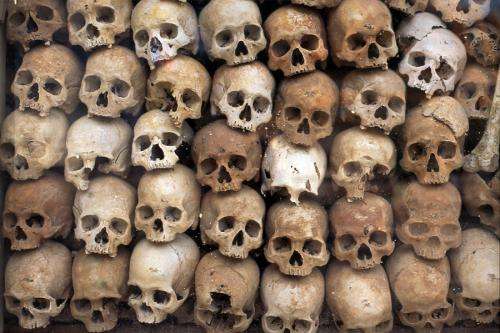A small step from a toxic workplace to dictatorship

Business bestseller lists are heavy with tales of inspirational leadership but a group of academics is gleaning lessons for management from the "dark side" by studying the methods of Pol Pot, the dictator responsible for the "killing fields" of Cambodia.
As commander of the Khmer Rouge, Pol Pot orchestrated the genocide of an estimated 1.7 million people, killing one in five in the then Kampuchea in five years, in pursuit of his "utopian vision" of a classless, peasant society.
Totalitarian regimes are not only social and political movements but also "organisational projects", says the Research Director of the Centre for Management and Organisation Studies at the University of Technology, Sydney (UTS) Business School, Professor Stewart Clegg.
"The processes that produced [the killing fields] can and should be analysed," says Professor Clegg. "Scholars in the field of organisational studies have an ethical responsibility to analyse not just the best in organisations but also the worst. There are things we can learn to enable us both to avoid those sorts of outrages in the future and to avoid the worst excesses that organisations are capable of."
Professor Clegg and his fellow researchers have isolated 20 principles that underpin totalitarian organisations. For instance, leaders – or managers – within such organisations demand conformity, maintain their distance, are selective in their "mercies" and favour certain people with perks and benefits. They also ensure a ceaseless round of activity leaves little room for reflection.
"These 20 principles or rules for constructing totalitarian institutions are phenomena that you might find present in everyday, normal organisations," says Professor Clegg. "It just needs a little accentuation of some of these aspects to begin to produce ethically very dubious organisations."
Bullying, stress and emotional burnout are examples of what you'll find in "toxic" business organisations, he says. At the extreme, "management by terror" – a term associated with Pol Pot – sometimes comes to the surface.
In France, former France Telecom chief executive Didier Lombard has been charged with harassment after 35 workers committed suicide in two years. One left a note blaming overwork and what he called "management by terror". Lombard has rejected allegations that his efficiency measures – "essential plans for the survival of the company" – were to blame.
In China, a wave of suicides drew attention to work practices at Foxconn, contract electronics maker for global brands such as Apple and HP. In a New York Times investigation in 2010, workers complained about military-style drills, verbal abuse by superiors and "self-criticisms" they were forced to read aloud.
Professor Clegg says the example of Pol Pot "tells you that where you have leadership that is absolutely convinced of the moral rightness and ideological purposefulness of its mission, and demands conformity among members for the achievement of that mission, anything is possible – and the anythings that are possible are not necessarily good things."
He says that, rather than having staff "singing from the same sheet", very strong corporate cultures are to be avoided. "I don't think they're a very good idea. I think it's from dissonance, from resistance, from polyphony that you get creativity and innovation."
Provided by University of Technology, Sydney















